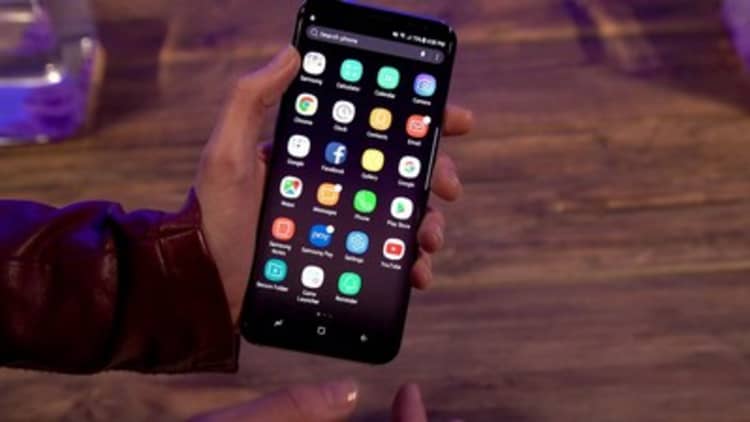
Smartphone makers and carriers would have you believe that you need to upgrade your smartphone at least every other year, maybe more, but you don't really need to.
We can (mostly) blame carriers for getting us into that kind of thinking. For as long as I can remember, until last year or so, we were used to upgrading on a biennial basis. When we walked into carrier stores for a new phone, we signed a contract that allowed us to upgrade the phone at little to no cost at the end of our two-year cycle. There was something special about coming up to that two-year mark.
"Oh boy! I can get a new phone and throw out this clunker! I can finally surf the web on a smartphone!"
That made a lot more sense in the age of feature phones, which seemed to age much more quickly than today's smartphones, especially after the debut of the iPhone in 2007. Now, you can easily go three or four years with a device. There's really no need to upgrade. Carriers know this, so they've changed their pricing plans around to encourage you to regularly come back for new devices.
When you buy a new smartphone now, you'll more than likely sign up for a "device installment plan" and pay off the bulk of the device's cost over 12, 18, 24 or 30 months. Make no mistake, you don't own this phone, the carrier does, and it's expecting you to turn it in after that time is up.
Depending on the phone and the plan, you'll pay anywhere from a few bucks a month to $45 or more. At the end of your cycle, if your phone is in good condition, you can trade it in for a newer model. Or you can buy it and keep it.
This strategy, like the biennial one, has helped to create the idea in our heads that we need to upgrade our smartphones often. The truth is, you really don't need the fancy new hardware.
If anything, there's really only one reason to upgrade your smartphone — to get the latest and most secure software available, whether it's Android or iOS. Apple does a great job keeping its older phones updated, though, so iPhone users don't need to worry. Google's Android partners aren't as good at that, with the Google Pixel and recent BlackBerry devices being rare exceptions.
Sure, new smartphones offer fancy new camera options, fingerprint readers, iris scanners and gorgeous displays that lure your eyes right back to the device. None of those are real reasons to upgrade a phone though, at least not unless you're a geek like me who just likes having the newest phone on the block.
Indeed, you can save serious dough by paying off your phone and riding it out for a few years, instead of paying monthly payments to essentially rent a new smartphone like the Galaxy S8. That phone, for example, will cost you $25 per month on AT&T with a 30-month agreement. Once 80 percent of the device has been paid off, and if it's still in good condition, you can trade it in and start all over again.
The Galaxy S8 costs $749 without any sort of contract. If you were to pay for it up front, you'd own it right away and you'd be free to sell it at
Here's a secret, though: Samsung's Galaxy S6, released two years ago, is still a really great smartphone. Anyone who owns that device is coming up on their upgrade cycle and could "upgrade" to a Galaxy S8 and pay that aforementioned fee. Why upgrade, though?
The Galaxy S6 still has a great fingerprint reader, a fantastic camera, a solid design and, while it took a bit of a delay, it's also getting the latest version of Android. You can save yourself $25 a month by just sticking with the device you have.
The same holds true for iPhones, which age even better than Samsung devices in my experience using both phones. They may slow down a hair as more advanced features are added to Apple's new software. Your display may crack after a few drops, or you may start to experience a decrease in battery life, but Apple Care+ can help you take care of those relatively small problems.
I know I'm the gadget guy here, and my job is to introduce you to some of the latest toys on the market. Sometimes you don't need to actually buy them, though, and it's worth taking a look at whether or not signing up for another $25 to $50 a month for a new phone is really worth the features offered over your old device. Sometimes it really isn't.
WATCH: CNBC puts the first-generation iPhone to the test



